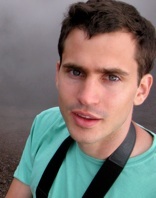Two new faculty to join MPI-SWS
We are pleased to announce that two new faculty will join MPI-SWS.

Allen Clement obtained his Ph.D. at the University of Texas at Austin in 2011. Allen's research aims at designing and building systems that continue to work despite the myriad of things that go 'wrong' in deployed systems, including broken components, malicious adversaries, and benign race conditions. His research builds on techniques from distributed systems, security, fault tolerance, and game theory. ...

Allen Clement obtained his Ph.D. at the University of Texas at Austin in 2011. Allen's research aims at designing and building systems that continue to work despite the myriad of things that go 'wrong' in deployed systems, including broken components, malicious adversaries, and benign race conditions. His research builds on techniques from distributed systems, security, fault tolerance, and game theory. ...
We are pleased to announce that two new faculty will join MPI-SWS.

Allen Clement obtained his Ph.D. at the University of Texas at Austin in 2011. Allen's research aims at designing and building systems that continue to work despite the myriad of things that go 'wrong' in deployed systems, including broken components, malicious adversaries, and benign race conditions. His research builds on techniques from distributed systems, security, fault tolerance, and game theory.

Cristian Danescu-Niculescu-Mizil is joining us from Cornell University, where he obtained his PhD in computer science. Cristian's research aims at developing computational frameworks that can lead to a better understanding of human social behavior, by unlocking the unprecedented potential of the large amounts of natural language data generated online. His work tackles problems related to conversational behavior, opinion mining, computational semantics and computational advertising.

Allen Clement obtained his Ph.D. at the University of Texas at Austin in 2011. Allen's research aims at designing and building systems that continue to work despite the myriad of things that go 'wrong' in deployed systems, including broken components, malicious adversaries, and benign race conditions. His research builds on techniques from distributed systems, security, fault tolerance, and game theory.

Cristian Danescu-Niculescu-Mizil is joining us from Cornell University, where he obtained his PhD in computer science. Cristian's research aims at developing computational frameworks that can lead to a better understanding of human social behavior, by unlocking the unprecedented potential of the large amounts of natural language data generated online. His work tackles problems related to conversational behavior, opinion mining, computational semantics and computational advertising.